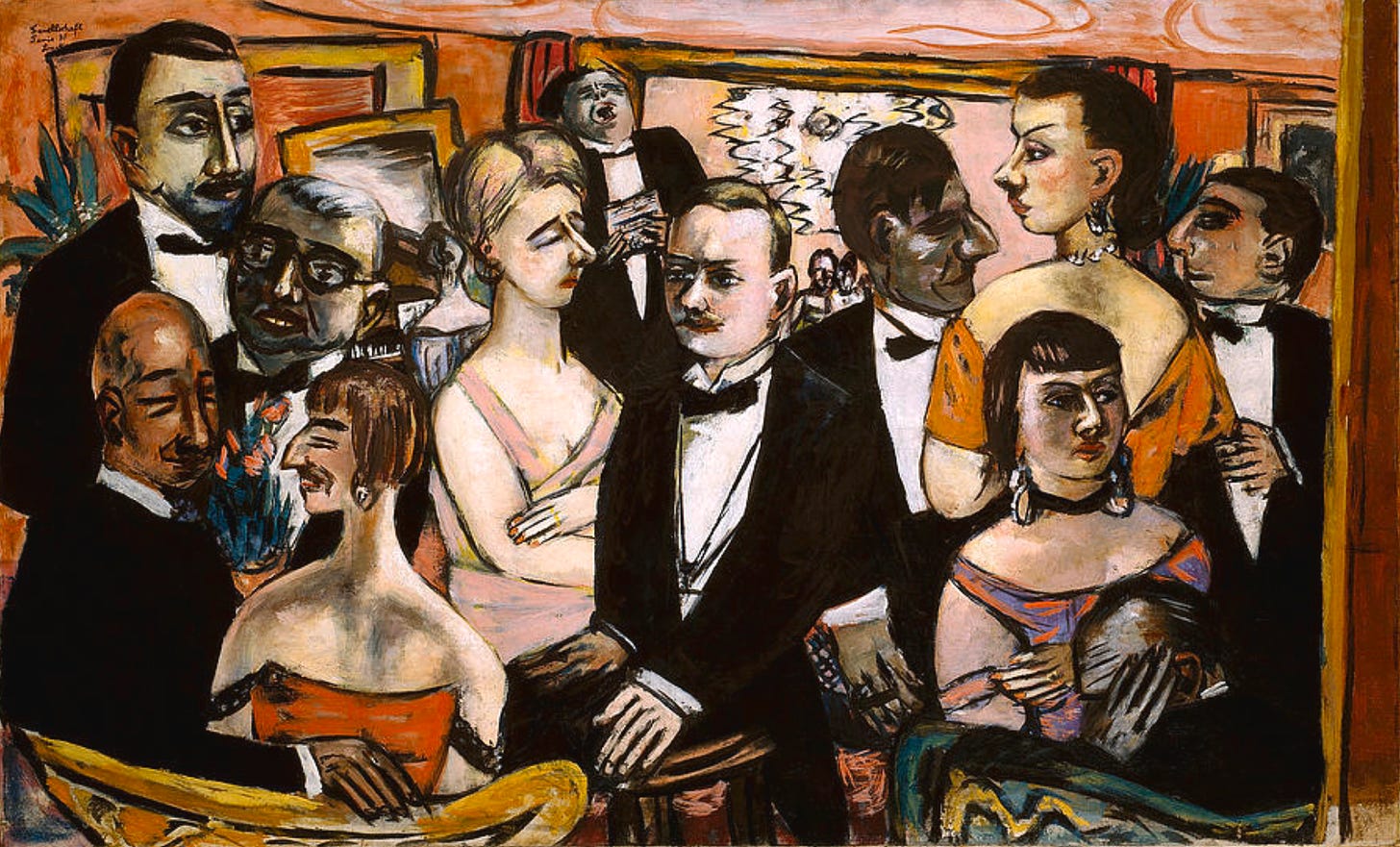Third places
If you spend a lot of time on the internet or are a subscriber to esoteric magazines and journals, you may have heard about the loss of third places, a neutral location that enables friendship and fosters community. Ray Oldenburg is an urban sociologist who popularized this concept. The “first place,” is home, the “second place,” is work, and the “third,” is a socially neutral ground (a park, library, cafe, bookstore, mall, etc…) A third place is relaxed. It is a space where one has the opportunity to reconnect with already-established friendships and perhaps even develop new ones. Sure, our libraries are in trouble and the American Mall is on the list of endangered species, but we still have our parks, coffee shops, and bars. How drastic of an effect could this have on human connection?
While many locations would still be considered “third places,” their numbers are dwindling and they are becoming increasingly inaccessible (think about the cost of a latte in a major city.) Plus, if you live in the Midwest, wanting to meet up in a park in February might require a sanity check. A personal favorite activity of mine is to meet a friend at a coffee shop. Nothing quite like celebrating each other’s wins, mourning each other’s losses and just poking fun at the absurdity of daily life over a warm beverage. But more often than not, to my dismay, the coffee shop is filled with people staring into the blue light of their laptop screens, camping out for hours. I’m not anti-working in a public space, because it is 2024 and we need to move on if that is the hill we want to die on. Still, there is something soulless and empty about seeing a social space being turned into espresso-scented cubicles. What was once a third place for connection and leisure is morphing into a workspace, a “second place.”
The loneliness epidemic
The loneliness epidemic is another phrase being thrown around in the media. Nearly one in four adults report feelings of loneliness. The numbers are even higher among younger adults. Prolonged loneliness leads to serious bouts of depression and even premature death. This is truly a crisis, but what is the connection between the loneliness epidemic and the loss of third places? Without a third place, many divide their time between work and home. If you work from home, we are looking at a collision of a first and second place, and this can lead to significant isolation. As a writer and a musician, my home is my office and studio, so I can often experience this firsthand, especially if I am not working on a show. Humankind is a spectrum of personalities and characteristics. Extroverts, introverts, and everyone in between need moments of solitude, but humans are by nature, social beings. The most introverted person you might know still needs community and connection.
Social media
Social media has changed how we interact with the world in both positive and negative ways. It creates opportunities to connect with people that one might never cross paths with, and it can be a convenient tool to stay in contact with loved ones. Many sociologists are starting to consider social media to be a new version of a third place, but communicating with people online is a very different experience from in-person interactions. There will always be a degree of distance within a relationship that only exists through direct messaging and “likes.” I’ve met many wonderful people through social media, to find that the relationship feels very different once we’ve met in person. Different isn’t bad, but there is re-acquainting that needs to happen. It is easy to only share a part of yourself online; you have more opportunities to edit. Of course, one can have a façade when face to face, but it is harder to maintain that over longer periods. True friendship requires a degree of vulnerability, and the internet isn’t always the best place to be vulnerable. So sure, an online community can be great, but it is not the solution to loneliness, nor is it an effective third place.
Colleague or friend?
How do people make friends anymore outside of maintaining childhood friendships or connecting with people at work? We have less exposure to new people that could potentially turn into meaningful relationships. Work friendships can be comforting and powerful, but there is a problem here. Where does the friendship begin and where does the professional relationship end?
Friendships are becoming increasingly transactional, especially if these friendships mostly center around work. Networking is important for progressing one’s career and it is wonderful if you find yourself connecting with work colleagues, but it can be challenging to determine if that person is a friend or a work acquaintance. Is someone asking for a favor as a friend or a co-worker? What are the professional or social consequences if one cannot deliver that favor? If you disappoint your friend, does that have negative consequences for you professionally, and what obligations do you have to these people? It’s quite murky, but this has been part of my internal dialogue for the last several weeks. No wonder I’m exhausted.
As an opera singer and production manager, my life leads me from one drastically different work environment to another. Sure there are usually some familiar faces at the start of the new contract, but I am often exposed to a completely new pool of people. I’ll frequently make new friends at nearly every gig and this is something for which I am deeply grateful. BUT when I take a step back, I realize many of my friends are work colleagues to a degree. These lines have always been blurred, even more in the arts, but it had me thinking about how many people might not know the difference between networking and friendship.
There is a level of vulnerability in the arts that makes it a prime situation for developing friendships. Many first rehearsals go something like this “Hi there, meet your love interest. In three weeks you’ll have to convince an audience of hundreds that the two of you have a frighteningly passionate and tumultuous relationship that ends in carnage. Ok, let’s start the sing-through!” [This is a simulated story, shortened and edited for clarity, impact, and comedy.] So yeah, hopefully, one develops some level of rapport with that colleague at the minimum.
If you’re lucky enough to find companions at work, wonderful, but many are working jobs where they might not relate to a majority of their colleagues. If we no longer have third places, this adds extra pressure for our workplaces to become socially fulfilling. I’m sure many of you reading this have worked in situations, or are currently working in situations where it is obvious that the people around you would not make for a compatible friendship.
Finding a new “place”
The first step is to destroy all laptops and burn down your workplace.
Don’t do that (though we all have our moments when that may seem enticing).
As usual, I ask a lot of questions, and I have very few answers, but one idea I have is to see the world with more fluidity. If third places are dying out, let’s look to create new ones that don’t require a static location. Third places can be a mindset. It can be the in-between; your commute to and from work, the grocery store, standing in line at the post office. Connection can happen anywhere. We’ve accepted the internet as a place of work and connection, so why not inject connection into every part of life? So wave to the cute kid in the stroller that is staring at you. Tell your neighbor that you admire their front garden, and compliment that stranger’s makeup on the subway. Based on my in-depth anthropological studies, it won’t kill you.






